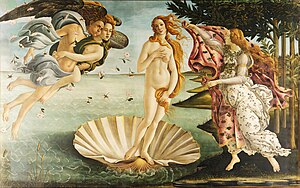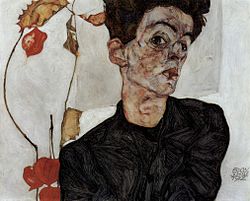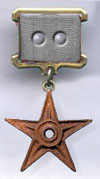User:Clio the Muse
What we see and what we seem are but a dream; a dream within a dream
I sent my soul through the infinite,
Some message of that afterlife to spell;
And by and by my soul returned to me and said;
'I myself am heaven and hell'





She Comes in Colours Everywhere
Have you seen her all all in gold
Like a queen in days of old
She shoots colours all around
Like a sunset going down
Have you seen the lady fairer.
She comes in colours everywhere
She combs her hair
She's like a rainbow
Coming colours in the air
Oh, everywhere
ME
Who am I? No fancy colours, no designs, no mission statements (and definitely no user boxes!), just a few simple facts. My name, part of it anyway, is Anastasia (not the grand duchess, though both my mother and my boyfriend claim I act like one). I was born in June 1986. I am English, conservative and patriotic. I love history, politics, literature, philosophy and travel. I have been fortunate to have covered a good bit of the globe, in one capacity or another, and hope to catch up with most of the rest over the next few years. My prime function here on Wikipedia is to answer questions, chiefly on the Humanities Desk, when I am able, and within the limits of my intellectual competence. I enjoy good company, both men and women, but I have a great problem in tolerating fools. This has been my chief weakness. Apart from that I am practically perfect in every way!
I am spending a lot of time on my computer at the present, enabling me, for sheer amusement and diversion, to dip into Wikipedia from time to time. I like dealing with empirical issues mostly, with questions that have a definite aim and purpose. I also like to challenge mistaken assumptions. But I really hate the long and windy discussions, which never reach a definite conclusion and simply allow people to drone on interminably. Pure prejudice on my part, I confess, and I am sure some people must find them constructive; but I will continue to avoid these 'baggy monsters', or exit quickly when a decent question turns into yet another drone fest!
I play golf, tennis, lacrosse, hockey and polo, being a good horsewoman, and I love to hunt. In addition, I go mountaineering from time to time, mainly in Scotland, but also in Spain and Norway, and I am an avid skier. An all rounder, in every good sense.
Why Clio? Because Clio, daughter of Zeus and Mnemosyne, is the muse of history and heroic poetry, and has been my ever present mentor since I was a very little girl.
Begin thou, unforgetting Clio, for all the ages are in thy keeping, and all the storied annals of the past. Statius.
Who would I be if I was not Clio? I would be Nobody. Why? Because Nobody's perfect!
WOMEN I ADMIRE
(In no particular order)


- Margaret Thatcher
- Emmeline Pankhurst
- Christabel Pankhurst
- Eva Peron
- Boadicea
- Jane Austen
- Margaret of Anjou
- Elizabeth I
- Catherine the Great
- Mary Wolstonecraft
- Queen Zenobia
- George Sand
- Leni Riefenstahl
- Hypatia
- Emily Brontë
- Joan of Arc
- Aphra Behn
- Amelia Erhart
- Edith Piaf
- Käthe Kollwitz
- Frida Kahlo
Jonathan Swift

Perhaps the greatest satirist who ever lived-I love him to bits! My favourite quotations?
- When a true genius appears in the world, you may know him by this sign, that the dunces are all in confederacy against him.
- It is useless to try to reason a man out of a thing he was never reasoned into.
- Blessed is he who expects nothing, for he shall never be disappointed.
- There is nothing in this world constant but inconstancy
MEN I ADMIRE
(Apart from Swift, and again in no particular order)

File:Lettow2.jpg
- Charles Dickens
- Winston Churchill
- Egon Schiele
- Eric Bloodaxe
- George Orwell
- Stonewall Jackson
- Arthur Schopenhauer
- Friedrich Nietzsche
- Douglas Haig
- Edward III
- Franz Kafka
- Guy de Maupassant
- Ivan the Terrible
- William Pitt the Elder
- Francis Drake
- Marcus Aurelius
- Horatio Nelson
- Graham Greene
- Paul von Lettow-Vorbeck
- Edmund Burke

Why I do not edit mainpages
It has been suggested-quite recently over the question of extermination camps-that I should also edit main pages. I did consider this when I first joined Wikipedia last October, but I was quickly discouraged. I raised some issues of interpretation on the Juan Peron talk page as a preliminary step, questioning in particular the contention that he could be accurately described as a 'fascist.' The argument I put forward was effectively silenced by the 'no original research' cudgel, though my reasoned contentions were not based on 'original research', whatever that is supposed to mean. Since then I have seen pages butchered by editing and counter-editing to the point where I consider them practically worthless. I cannot tell you just how many simple errors I have discovered, and the quality of 'collective writing' is in many cases quite atrocious. Hence the reference desk, where no-one can butcher what I write, and where I act as a guide and a mentor. Long may it continue.
I have now reflected on the above and changed my mind. After all, it is a lady's prerogative, is it not?
Clio's Anthem for England
It has to be this [1]. I Vow to Thee, My Country
 |
- I vow to thee, my country, all earthly things above,
- Entire and whole and perfect, the service of my love;
- The love that asks no question, the love that stands the test,
- That lays upon the altar the dearest and the best;
- The love that never falters, the love that pays the price,
- The love that makes undaunted the final sacrifice.
- I heard my country calling, away across the sea,
- Across the waste of waters she calls and calls to me.
- Her sword is girded at her side, her helmet on her head,
- And round her feet are lying the dying and the dead.
- I hear the noise of battle, the thunder of her guns,
- I haste to thee my mother, a son among thy sons.
- And there's another country, I've heard of long ago,
- Most dear to them that love her, most great to them that know;
- We may not count her armies, we may not see her King;
- Her fortress is a faithful heart, her pride is suffering;
- And soul by soul and silently her shining bounds increase,
- And her ways are ways of gentleness, and all her paths are peace.

Clio's favourite fictions
In no particular order, and confining myself to one book for each author (and restricting myself also to twenty out of hundreds), these are as follows;
- Our Mutual Friend by Charles Dickens. A wonderful book with one of my favourite minor charcters, Lavvy the Irrepressible. Like her 'I don't care whether I am a Minx, or a Sphinx.'
- Emma by Jane Austen. I adore Jane Austen, but I did say I was confining myself to one book for each author, so Emma it is. Again, she is a lot like me, and I once almost fell into the same trap!
- Ulysses by James Joyce. What can I say about this book other than it's certainly the greatest Irish novel, and possibly one of the greatest books ever written. Joyce's insight into the history, culture and psychology of his country is quite breathtaking. If Ireland disappeared off the face of the earth I think it might be possible, in large measure, to recreate it on the basis of the information in Ulysses. My favourite section is Oxen of the Sun, where the author explores the differing modes of literary discourse.
- The Wind in the Willows by Kenneth Graham. The very best childrens' book. I read it when I was seven, and fell in love with the Great God Pan, the Piper at the Gates of Dawn.
- Breakfast at Tiffany's by Truman Capote. Ah, the wonderful, life-enhancing Holly Golightly, the freest of free spirits. I identify with her more than any other female in fiction.
- Crime and Punishment by Fyodor Dostoevsky. I read this over a wet and feverish weekend as an undergraduate at Cambridge, and it filled my mind with all sorts of alarming thoughts, Napoleonic in intensity!
- Under the Volcano by Malcolm Lowry. A tremendous tour de force, a great whirlwind of images, impressions and ideas. In my view the best English novel of the last century.
- The Old Man and the Sea by Ernest Hemingway. Most of Hemingway's work leaves me quite cold, but not this little book. It was one of the set books in my forth form English class. Most of the girls thought it silly, but I, being a lover of Greek and Roman myths and legends, saw in it some of the great eternal values. A book that transforms the mundane.
- Wuthering Heights by Emily Brontë. The greatest of all the Brontë books. I still cannot bring the story of Cathy and Heathcliff to mind without feeling the tears welling up.
- Victoria by Knut Hamsun. I love all of Hamsun's early work, but Victoria edges slightly ahead of Hunger and Pan.
- Labyrinths by Jorge Luis Borges. His 'fictions' are inspired works of genius.
- Plain Tales from the Hills by Rudyard Kipling. I do not give a damm about the imperialism, Kipling is one of the great craftsmen of English prose, now sadly underestimated.
- Journey the the End of the Night by Celine. Another 'politically incorrect' choice, but a great book.
- The Castle by Franz Kafka. Who could ever forget Arthur and Jeremiah?
- Short Stories by Guy de Maupassant. All of them, but The Necklace in particular. The irony is heart-breaking.
- Animal Farm by George Orwell. Orwell is a far better essayist than novelist, but Animal Farm deserves a place amongst the very best of English political satire.
- The Quiet American by Graham Greene. Every American President should be made to read this before taking office.
- Le Grand Meaulnes by Alain-Fournier. A little book of outstanding lyrical beauty.
- The Last of the Just by André Schwarz-Bart. A book that deserves to be far better known. The last few pages tore my heart out.
- La Bas by Joris-Karl Huysmans. Satanism in La Belle Epoch! Worth reading for the insight it gives into the career of Gilles de Rais, all the more horrifying because he really lived.
Clio's favourite non-fictions
Again no order of importance, just as they come into my head.
- The Strange Death of Liberal England by George Dangerfield. This, for me, is among the greatest of the history books ever written. My aim is to be as good a writer as Dangerfield.
- The Decline and Fall of the Roman Empire by Edward Gibbon. Yes, I have read all six volumes in the Everyman edition! Another classic work of history that remains well worth reading.
- The History of the Crusades by Sir Steven Runciman. In the tradition of Gibbon.
- Byzantium by John Julius Norwich. Slightly more up to date. A great three volume history.
- Once out of nature I shall never take
- My bodily form from any natural thing,
- But such a thing as Grecian goldsmiths make
- Of hammered gold or gold enamelling
- To keep a drowsy emperor awake;
- Or set upon a golden bow to sing
- To lords and ladies of Byzantium
- Of what is past, or passing, or to come.
- Stalin: The Court of the Red Tsar by Simon Sebag Montefiore. The very best recent biography on any subject.
- Also Sprach Zarathustra by Friedrich Nietzsche. A book for me and no-one!
- Cursed Days by Ivan Bunin. Revealing details about the criminal horrors that accompanied the Bolshevik coup in Russia.
- Essays by George Orwell. Politics and the English Language should be compulsory reading for all people in political and academic life.
- Collected Works by Jonathan Swift. All sorts of literary treasures: full of 'sweetness and light.'
- The World as Will and Representation by Arthur Schopenhauer. In the most meaningful sense of the word this book is indeed unique.
- A Vindication of the Rights of Women by Mary Wollstonecraft. The first and best of the great feminist texts.
- The Second Sex by Simone de Beauvoir. Another great feminist text, though in general I do not have an especially high opinion of De Beauvoir.
- Reflections on the Revolution in France by Edmund Burke. A warning to all who would seek to turn the world upside down. The classic conservative text, important even today.
- Histories by Herodotus. Where would we be without Herodotus? A sheer delight
- Out of Africa by Karen Blixen. 'I had a farm in Africa at the foot of the Ngong Hills.'
- The Alexiad by Anna Comnena. Not, perhaps, one of the most remarkable of the Roman emperors, but certainly one of the most remarkable of Roman daughters.
- The Oxford Dictionary of Quotations. My copy is so well-used that it has become quite dog-eared.
- Essays by Michael Montaigne. Timeless.
- Mao by Jung Chang and Jon Halliday. A brilliant depiction of one of history's biggest shits. I was horrified to discover myself staying in Mao Tse-Tung Boulevard while in, of all places, Phnom Penh.
- English History, 1914-1945 by A. J. P. Taylor. One of the craftsmen of English history, who writes in a trenchant and gripping fashion, no matter how flawed some of his judgements are.
Clio's Awards
All much appreciated.

|
The Exceptional Newcomer Award | |
| I was the one who welcomed you, and even though you really can't be considered a newcomer anymore, you still deserve the Exceptional Newcomer Award! bibliomaniac15 Review? 01:42, 5 November 2006 (UTC) |

|
The Epic Barnstar | |
| I, Dweller, award Clio the Epic Barnstar for outstanding History-related contributions at the Humanities Reference Desk. You sprinkle enlightenment like gold dust. Dweller 15:53, 21 March 2007 (UTC) |

|
The Original Barnstar | |
| Clio, I award you this barnstar, though it seems so inadequate to express my thanks for the outstanding help that you gave me in response to my question. You truly are a star. TP86 11:57, 11 April 2007 (UTC) |


Half a star for your expansion of Barbatio (You should frequent WP:RDAC and "join" it, maybe it can be revived.). The other half for everything else! :-) ---Sluzzelin talk 19:46, 23 May 2007 (UTC)

|
The Original Barnstar | |
| I hereby award you this Barnstar for your outstanding work on the Reference Desks. Corvus cornix 19:21, 23 June 2007 (UTC) |

|
The Half Barnstar | |
| I hereby award you the Half Barnstar, for your superb work with Ghirla in generating encyclopaedic content from the Humanities Ref Desk. Rockpocket 05:34, 29 June 2007 (UTC) |

|
The Epic Barnstar | |
| Awarded to Clio for outstanding contributions to history of the 17th-19th centuries.Blnguyen (bananabucket) 03:02, 25 July 2007 (UTC) |

|
The Epic Barnstar | |
| I see you already have one, but I think your level of work deserves two. Apparently, I am supposed to explain here why I award it, but somehow there are few doubts that wp:rd/h would be why!martianlostinspace 13:22, 1 August 2007 (UTC) |

|
The Barnstar of Diligence | |
| Clio, i award you this barnstar for your tireless and excellent efforts in helping answer peoples queries on the humanities reference desk Hadseys 01:25, 8 August 2007 (UTC) |

|
The Wikipedian Order of St George and the Dragon | |
| Awarded to Clio for services to history and heroic poetry, philosophy, music, language, rhetorick, reasoning, and the enlightenment of the commonwealth. Xn4 15:21, 15 August 2007 (UTC) |

|
The Random Acts of Kindness Barnstar | |
| Thank you for your help with Muslim history. You are very wise. Philip the Arab 16:18, 27 August 2007 (UTC) |

|
The Epic Barnstar | |
| for being so brilliant Martinben 15:19, 29 August 2007 (UTC) |

|
The Special Barnstar | |
| From me for being the person you are. You have given me so much simple pleasure. Fred said right 14:23, 11 September 2007 (UTC) |
  I hereby grant you the Scope of Accuracy for accurately answering lots of questions and the Spade of Tireless Research for always digging up the relevant sources. May they aid you in your further work on WP:RD/H -- Ferkelparade π 01:42, 22 October 2007 (UTC) |

|
The Bronze Wiki | |
| for your continuing informative and helpful responses on the Reference Desk which have been intelligent, informing, well researched and sometimes humorous. Your contributions have been astonishingly wonderful and engaging to read. A great man once said "Catapultam habeo. Nisi pecuniam omnem mihi dabis, ad caput tuum saxum immane mittam" and how useful that phrase is today although I can't see it ever being said by you. "Cave ab homine unius libri" is not something that will ever apply to you either and for that I am grateful. Cedo maiori 86.21.74.40 01:17, 3 November 2007 (UTC) |

|
The Surreal Barnstar | |
| Awarded to Clio from Fred for being repeatedely useful, a Greek spirit of wisdom and knowledge in a land of virtual dreams. Fred said right (talk) 12:56, 6 December 2007 (UTC) |

|
The Reference Desk Barnstar | |
| For being arguably the best RD respondent ever. Taraborn (talk) 17:18, 5 January 2008 (UTC) |


|
The Socratic Barnstar | |
| Who but you deserves one of these. I suppose it should really be the Hypatia Barnstar! OTMA (talk) 20:23, 5 April 2008 (UTC) |


|
The Barnstar of High Culture | |
| thank you for your answers to my questions on philosophy. I cannot say how impressed I am. F Hebert (talk) 11:43, 21 April 2008 (UTC) |
I think you deserve this for your many wonderful contributions to the Reference Desk, always a pleasure to read. I am so sorry that you are gone. Topseyturvey (talk) 05:48, 11 May 2008 (UTC)

|
The Barnstar of Awesomeness | |
| Come Back Soon! Strawless (talk) 17:54, 16 May 2008 (UTC) |

|
The Barnstar of Emptiness | |
| For the unique void you left behind, and hoping you will fill it again someday in the near or distant future. Yours. Sluzzelin talk 09:17, 14 June 2008 (UTC)|}
Greetings, Clio the Muse. |



